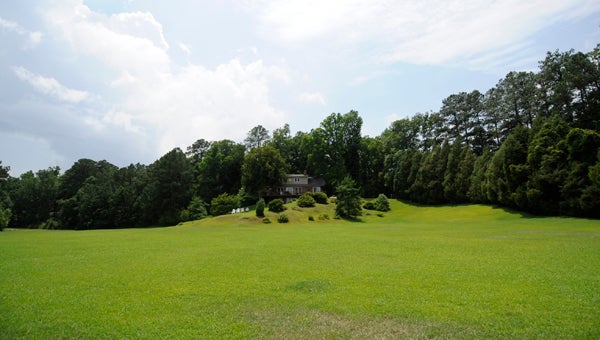What does my soil report actually tell me?
Published 7:39 pm Thursday, January 24, 2019
I get this question quite a bit this time of year. Although it is a little early to plant your garden, it isn’t too early to be thinking about it. In the wake of the cold weather this past week, I have had to go to my own little happy place where warm weather and tropical plants reside! Unfortunately, frozen and broken pipes were the reality.
One of the best ways to get ready for spring gardening is to get a soil sample sent to the NC Department of Agriculture Soil Testing Facility in the fall of the year. Once your results are in, it is time to interpret those results and figure out what you need to provide for your garden in the spring. The first order of business is to retrieve your report. This can be done through email (soil reports are sent to your email provided on the sample form) or on the Public Access Laboratory-information-management System site — www.ncagr.gov/agronomi/pals/. Enter your name (last name, first name) and then select your account from the drop-down list. Once your account is selected, it will bring up your soil reports for a period of four years. Select your most recent record, and download the PDF file for viewing.
The report will contain several important pieces of information for the home gardener. The most important piece of information on the entire report is the pH value. This is a measure of how acidic your soil is currently. Your soil pH is the basis for how soluble certain nutrients are in soil solution. Plants’ roots take up nutrients that are dissolved in moisture in the soil (called soil solution); if the pH is too high or too low on the scale, these nutrients are unavailable to the plant. There will also be a lime recommendation. Most plants, including garden plants, lawns and bedding plants need a slightly acidic pH in the range of 6.0 – 6.5, although there are a few exceptions. If your soil’s pH is below 6.0 (5.5 in high organic soils), the NCDA agronomist will recommend a certain amount of lime be applied per 1,000 square feet to raise soil pH to an optimal level. This recommendation is typically good for a two- to three-year period, applying the recommended amount of lime one time. Lime is used to raise pH values in the soil and elemental sulfur is used to lower soil pH.
In the upper right, there is a fertilizer recommendation. There will be numbers such as 15-0-14 and letters N-P-K. These letters stand for Nitrogen (N), Phosphorus (P) and Potassium (K) and are in order, respectively, according to the numbers 15-0-14. It is important to understand that N is not a measured value from the soil sample but is based on the type of plant being grown and other nutrient levels in the soil. N is too volatile in soil to accurately test for, so this value is extracted from a database. P and K are both tested in the soil lab, and the recommendation given is based on the amount available and the amount necessary to sufficiently grow the type of plant listed on the sample form. In this example, the recommendation is for 15-0-14, this is the analysis of the fertilizer and means that it contains 15-percent N, 0-percent P, and 14-percent K or a 1:0:1 ratio. There will be an amount, such as 7lbs per 1,000 square feet that will accompany the analysis to let you know how much product to apply. If you are unable to find the specific fertilizer, there are more recommendations on the back page of the report that you can use.
In keeping with the winter meeting tradition, I am having my fourth-annual “Warm-Season Turf Update for Professional Landscapers” on Jan. 29, here at the Beaufort County Center. The day will offer education and networking opportunities to attendees. This is also a great opportunity to earn continuing education credits for those that hold a NCDA Pesticide License or a NC Landscape Contractor’s License. There will be three talks and lunch for a cost of $15. Talks will be on insects and diseases, weed identification and control, improving pesticide efficacy and control, and (if you couldn’t guess) glyphosate and the bad press surrounding pesticides.
Visit the Beaufort Cooperative Extension website for more information or to register for the class, call 252-946-0111 or visit beaufort.ces.ncsu.edu. Information about the 2019 Warm-Season Turf Update is also on the Blacklands Area Horticulture Facebook page.
If you are having an issue in your home garden or landscape, send your questions to Gene Fox, please email at Gene at gene_fox@ncsu.edu.
Gene Fox is a consumer horticulture agent with the North Carolina Cooperative Extension Service, covering Beaufort, Hyde, Tyrrell and Washington counties.






